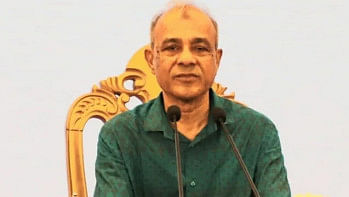Glimmer of light on N Korea amidst intense diplomacy
Top United States envoy James Kelly talked with North Korea's chief ally China yesterday after President George W Bush held out the prospect of aid for Pyongyang if scraps its nuclear programmes.
As intense diplomacy to resolve the three-month-old standoff moved into overdrive, Kelly met officials including Chinese Vice Foreign Minister Li Zhaoxing.
But Washington's senior diplomat for Asia declined to say what he might ask Beijing to do or whether the US would offer the security guarantee or incentives Pyongyang wants in exchange for renouncing its nuclear ambitions.
"I'm very reassured we have to keep talking with each other to make sure things come out in the best possible way. That's why I'm making this very visit to Beijing," Kelly told reporters before heading behind closed doors.
"It's just an occasion to work with respective colleagues on problems that concern all of us. There's no substitute for communication."
China is considered neighbouring North Korea's closest ally and while vague about its efforts to ease the situation, Beijing has offered to host any resumed dialogue between Washington and Pyongyang.
Kelly's stop in China is a crucial phase of his ongoing Asian tour as developments point to a softening of North Korea and the United States' hardline positions.
The race to end the crisis gathered pace after Russia said it would send a top envoy to the North while an Australian delegation spent its second day in the isolated state - the first mission by a Western nation since the nuclear standoff erupted in October.
South Korea said it was cautiously optimistic after Bush said he was pondering reviving an aid scheme if North Korean leader Kim Jong-Il dismantled his atomic threat.
It was the clearest sign yet that Washington is prepared to offer Pyongyang incentives to back down from its nuclear program.
"The mood here is one of cautious optimism," said Kim Jong-Ro, spokesman for South Korea's Unification Ministry which handles dealings with North Korea.
"The Bush comments are a starting point of a process that may lead to negotiations."
South Korea later agreed to hold cabinet level talks with North Korea in Seoul next week. The two sides are to convene January 21-24, the first such meeting since North Korea stunned the world with threats to revive a nuclear plant capable of producing weapons grade plutonium.
Unification Minister Jeong Se-Hyun, who will lead the South Korean side, said earlier this month he was looking for a "breakthrough" in the nuclear standoff if the talks went ahead.
Speaking in Washington, Bush said he was considering reviving "a bold initiative, an initiative which would talk about energy and food, because we care deeply about the suffering of the North Korean people."
The plan was mothballed when Kelly travelled to North Korea in October and said he had extracted an admission from the regime that it was running a secret enriched uranium nuclear weapons program, a charge denied by Pyongyang.
That allegation triggered a deepening crisis that has seen North Korea prepare to reactivate its Yongbyon nuclear plant, frozen under a now defunct 1994 US-North Korea accord, expel UN monitors and withdraw from the nuclear Non-proliferation Treaty (NPT).
Now Bush, who has said he loathes Stalinist leader Kim and made his country a charter member of his "axis of evil," has offered Pyongyang the clear prospect of economic and political gains in return for dismantling its nuclear programmes.
"We expect them to disarm. We expect them not to develop nuclear weapons, and if they so choose to do so - their choice - then I will reconsider whether or not we will start the bold initiative," Bush said.
North Korea has insisted in recent days that it is not seeking nuclear weapons but wants a non-aggression pact with Washington and has suggested it could reverse its withdrawal from the NPT.

 For all latest news, follow The Daily Star's Google News channel.
For all latest news, follow The Daily Star's Google News channel. 



Comments